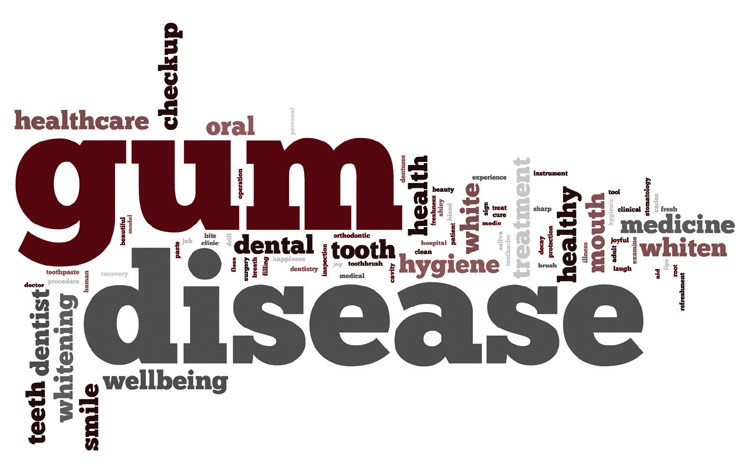| Preventing periodontal problems is essential for overall health and well-being |
MILLIONS OF AMERICANS have a silent disease working in their mouths and they don’t even know it. It’s periodontal disease — also called gum disease — and it could be doing damage to your health even as you read this. According to the American Dental Association, 50 percent of adults over age 30 have some form of gum disease, and most are woefully unaware of the disease and its dangers. Gum disease doesn’t simply affect your teeth; studies have shown that the disease is connected to your overall health and well-being.
THE CAUSES
At its simplest, periodontal disease is a bacterial infection of the tissues of the mouth, but in detail it’s a complicated autoimmune disorder. Gum disease is characterized by an overabundance of damaging bacteria, which release toxins that signal an infection to the body. Your body’s autoimmune response sends out infection-fighting cytokines. In large numbers over time, cytokines cause inflammation and damage to the mouth and body.
Oral care professionals agree that the most common cause of periodontal disease is poor oral care. In addition, eating sugary or acidic foods give the damaging bacteria their favorite environment, increasing the likelihood and severity of gum disease.
Furthermore, a number of other factors also can increase your chances of developing gum disease, such as diabetes, age, and genetics. Some factors are avoidable, however. One major factor that contributes to acute gum disease and is completely preventable, per the CDC, is smoking and the use of other tobacco products. Studies have shown that the use of tobacco wreaks havoc with gums and overall health, increases the level of cytokines the body creates and hampers gum disease treatment. Oral health professionals maintain that it is the single most preventable risk factor for periodontal disease.
THE DANGEROUS EFFECTS
Periodontal disease has many unpleasant consequences. Moderate symptoms include swollen and bleeding gums, bad breath, and tooth sensitivity. As the disease advances, sensitivity increases, teeth can become loose, and abscesses can form in the recesses between teeth and gums. Pain can start to be a factor, and it’s usually at this point that sufferers will seek dental help and learn that they have the disease. Tooth loss also is very common.
Unfortunately, the dangers and damages caused by periodontal disease likely do not stop at the mouth, according to the American Academy of Periodontology. Recent medical evidence draws a definite connection between periodontal disease and deadly conditions like heart disease and stroke. The exact nature of the relationship between gum disease and your overall health is currently unclear. One theory is that the bacteria that causes gum disease may be doing damage to the body. Another school of thought is that it’s the body’s response — the cytokines — that are damaging the body’s veins and arteries.
TREATMENT OPTIONS
Treatment varies depending upon the severity of the gum disease, but there have been many improvements in treatment options over the years, equating to less pain for the patient. From deep cleanings to surgery to maintenance, the goal is to stop or reverse the progression of the disease. Your dentist is your best resource for dealing with periodontal disease in all of its forms, so, if you suspect gum disease, see your dentist as soon as possible.
CREDIT
article by ERIKA ALDRICH
